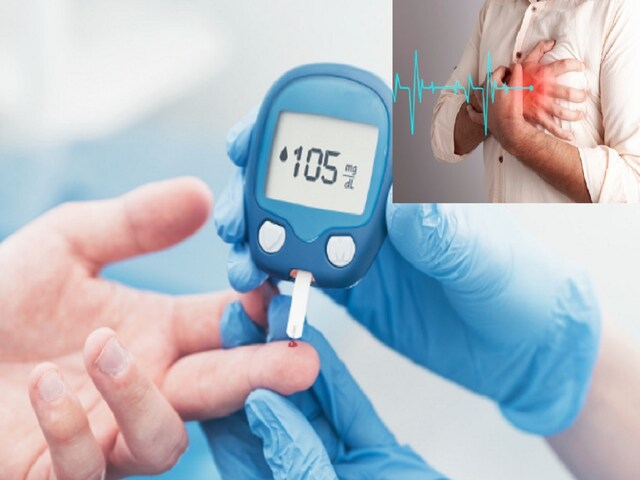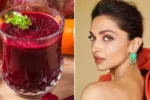Navratri is a time of devotion, fasting, and celebration. Many people follow a fast during this holy period. But if you have diabetes or heart disease, you need to be extra careful while fasting. Fasting can affect your sugar levels, blood pressure, and overall health.
Here is a detailed guide on what not to do if you are a diabetes or heart patient and want to keep Navratri fast.
1. Do Not Skip Medicines Diabetes
Contents
- 1 1. Do Not Skip Medicines Diabetes
- 2 2. Do Not Stay Hungry for Long Hours
- 3 3. Do Not Eat Too Much Fried Food
- 4 4. Do Not Eat Too Many Potatoes or Sabudana
- 5 5. Avoid Packaged Fasting Snacks
- 6 6. Do Not Ignore Signs of Low or High Sugar
- 7 7. Avoid Too Much Tea or Coffee
- 8 8. Don’t Eat Large Quantities at Once
- 9 Tips for Safe Fasting:
- 10 Final Words
- 11 Latest Updates
One big mistake that many people make during fasting is skipping their regular medicines. Even if you are not eating the usual food, your body still needs your prescribed medicines for sugar or blood pressure.
What to do?
- Always take your medicines on time.
- If needed, consult your doctor to adjust the timing during fasting.
2. Do Not Stay Hungry for Long Hours
If you are a diabetic or heart patient, you should not stay without food or water for many hours. This can lead to low sugar levels or low blood pressure, which is dangerous.
What to do?
- Eat small meals or fruits at regular intervals.
- Drink enough water or healthy drinks like coconut water or lemon water (without sugar).
3. Do Not Eat Too Much Fried Food
Many people eat a lot of fried items like sabudana vada, potato chips, or pakoras during Navratri. This is very harmful for both heart and sugar patients. Fried food increases cholesterol and sugar levels.
What to do?
- Choose baked or steamed options like roasted makhana, boiled sweet potato, or fruits.
- Cook with very little oil or use ghee in small amounts only.
4. Do Not Eat Too Many Potatoes or Sabudana
Diabetes Potatoes and sabudana (sago) are common in fasting food, but they are high in carbohydrates. For diabetics, they can increase blood sugar quickly.
What to do?
- Replace potato with lauki (bottle gourd), pumpkin, or kuttu (buckwheat) flour.
- Use small portions only and mix with high-fiber vegetables.
5. Avoid Packaged Fasting Snacks
During Navratri, markets are full of ready-made fasting snacks like chips, namkeen, or sweets. These often contain hidden sugars, salt, and unhealthy fats.
What to do?
- Always check the label before buying.
- Homemade food is the safest. Try simple recipes at home using fresh ingredients.
6. Do Not Ignore Signs of Low or High Sugar
When you are fasting, your sugar level may drop or rise suddenly. Ignoring signs like dizziness, tiredness, blurred vision, or fast heartbeat can be risky.
What to do?
- Keep a glucometer with you to check your sugar levels.
- Always carry a small fruit or glucose tablet, just in case you feel unwell.
7. Avoid Too Much Tea or Coffee
Tea and coffee contain caffeine, which can dehydrate your body. Many people drink them in large amounts during fasting, which is bad for the heart and sugar levels.
What to do?
- Limit to 1-2 cups a day.
- Drink more plain water, buttermilk, or herbal tea.
8. Don’t Eat Large Quantities at Once
Some people don’t eat the whole day and then eat a large meal in the evening. This can cause a sudden spike in sugar and pressure levels.
What to do?
- Eat small meals throughout the day.
- Try to include fiber-rich foods and avoid sweets.
Tips for Safe Fasting:
- Consult your doctor before starting the fast.
- Keep healthy snacks ready at home.
- Focus more on prayer and rest. Don’t overwork or stress your body.
- Monitor your sugar and pressure levels daily.
Final Words
Fasting during Navratri can be safe if done wisely. People with diabetes or heart disease need to plan their meals, take medicines, stay hydrated, and avoid unhealthy foods. Never copy what others are eating. Your body has different needs.
Fasting is not just about not eating food—it is about discipline and balance. With the right approach, you can keep your fast, stay healthy, and enjoy the blessings of Navratri without harming your body.







